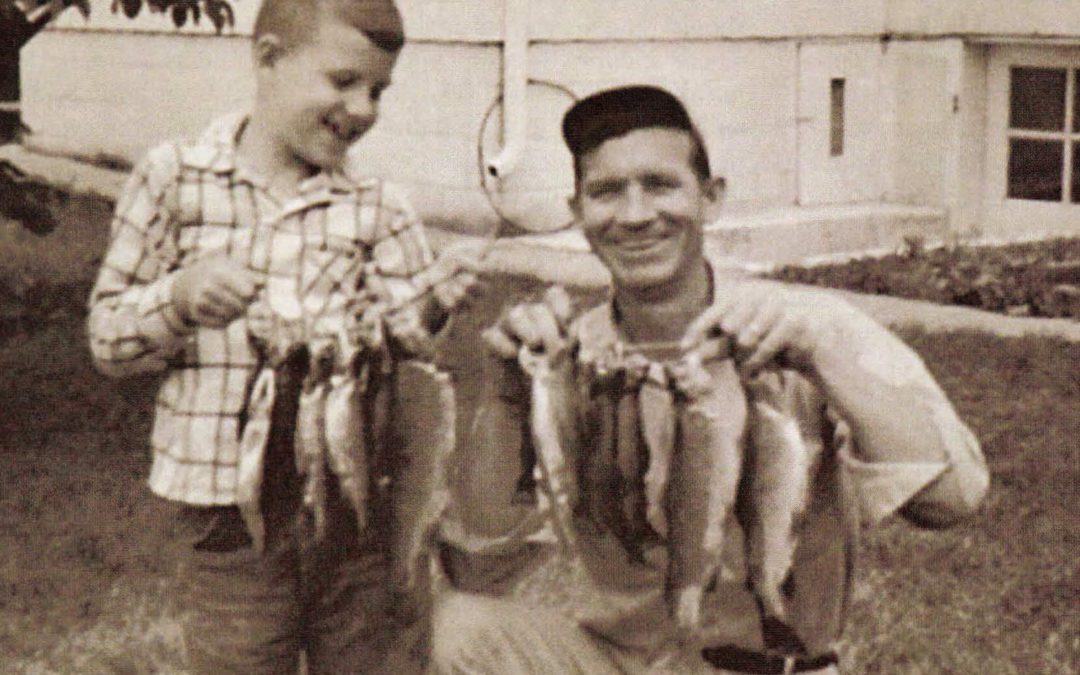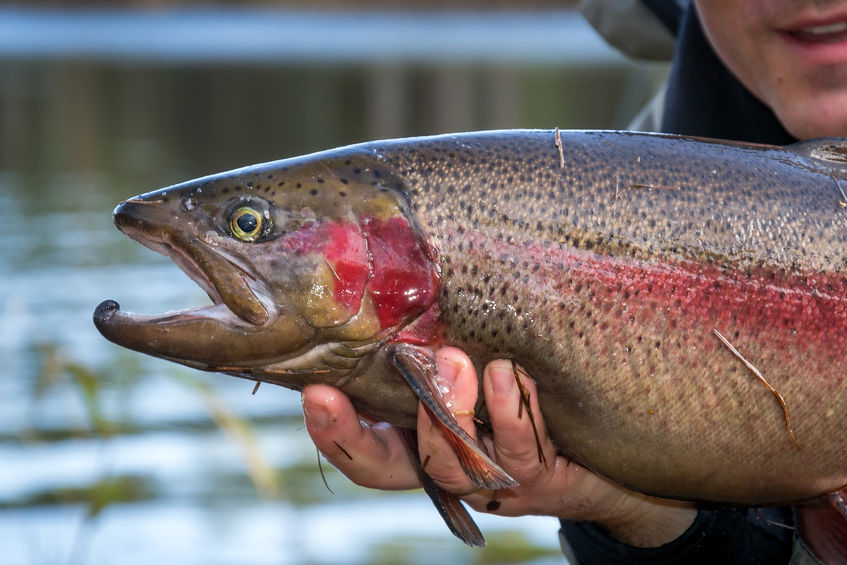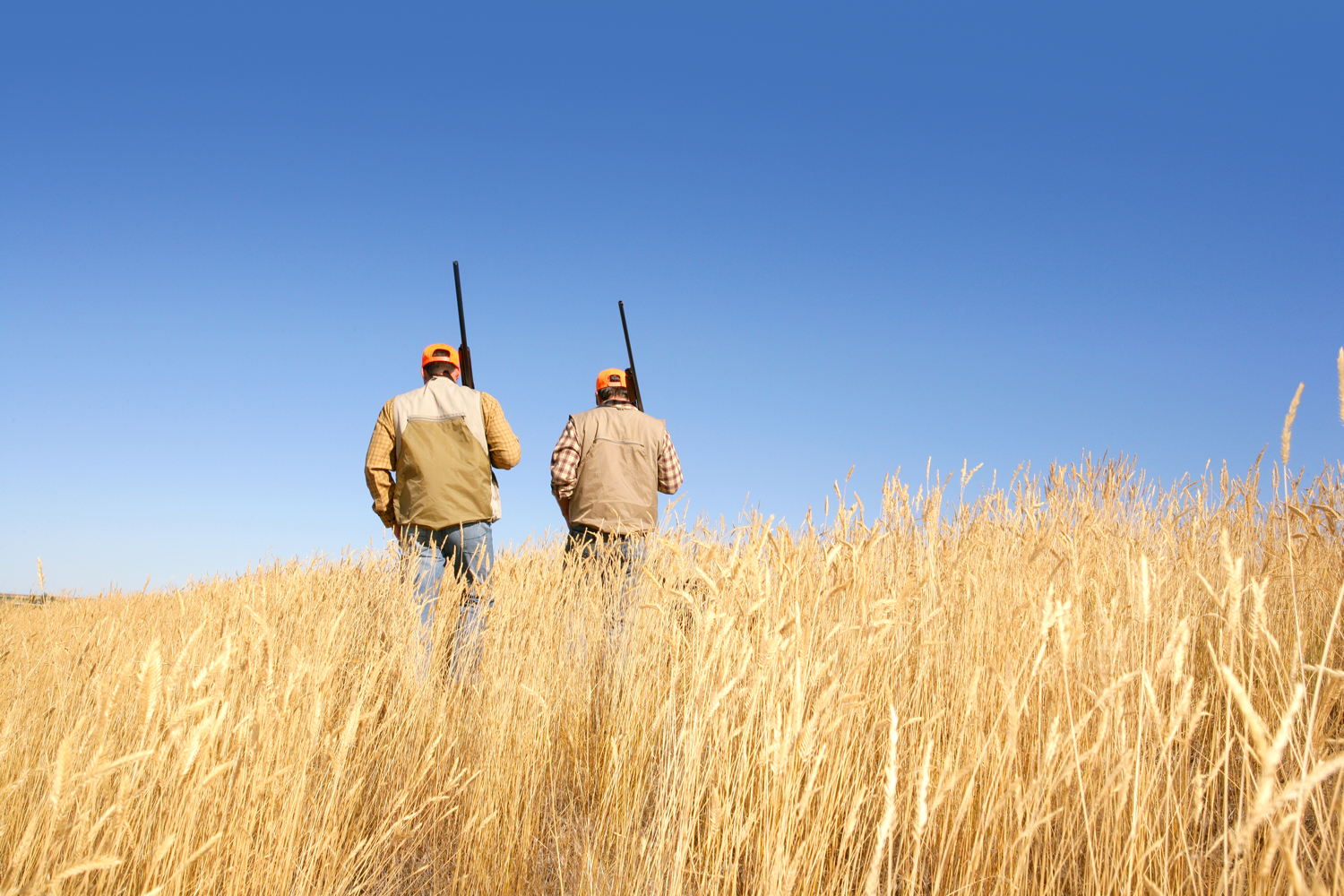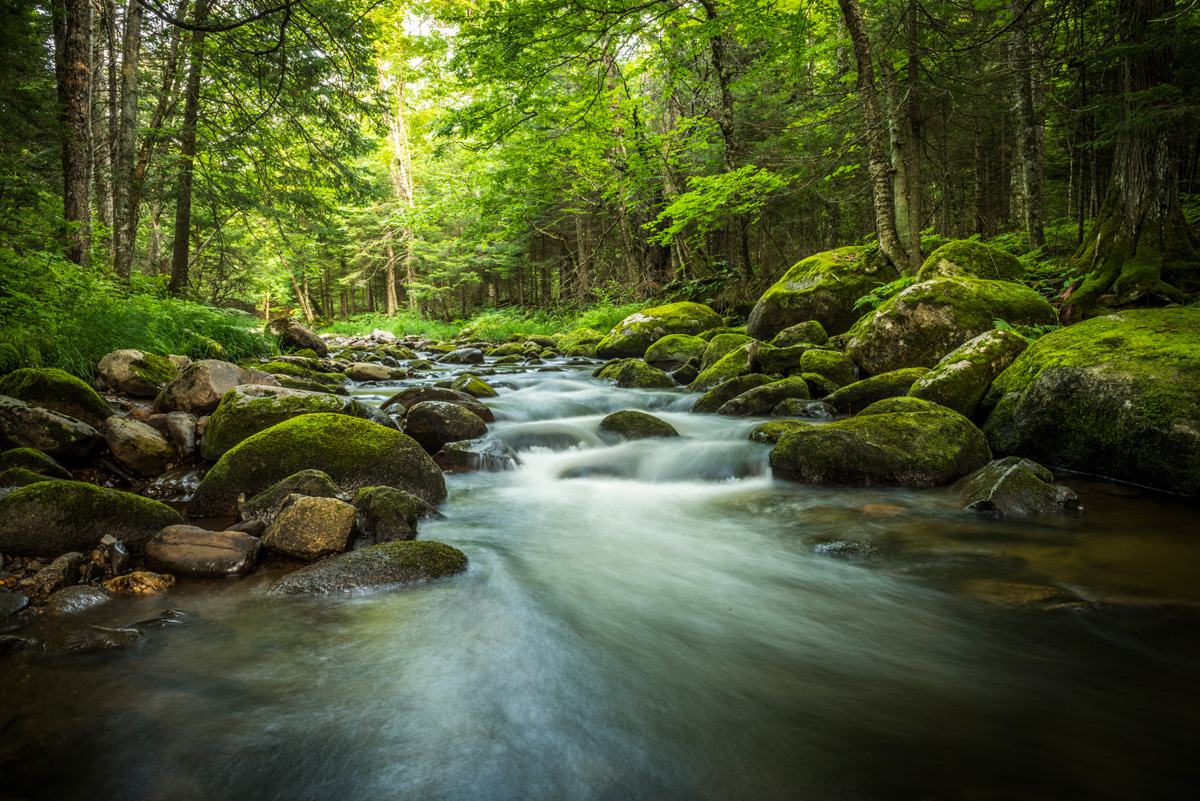At barely eight years old, he was scarcely ready to confront a wily old trout poacher. Or was he?
Friday afternoon, 14th day of April 1959, with trout season due to open the next morning. I’d turned in my homework, got Monday’s assignments from Mrs. Whitten, and Dad picked me up at school at 3:30. We were heading straight for the Upper Ford of Roaring Fork, where I knew my age and size would not matter. Not to me, not to him, and certainly not to that close-knit group of men who always treated me as an equal whenever we were fishing.
We bore west out of town, then left at Frog Level, out across Thompson Valley and up the northern flank of One Way Mountain before turning down into Roaring Fork. We made the Upper Ford by dusk.
It was good to see everyone as we set up camp. With supper done and gear organized and stories told and retold, I crawled into the tent alone without formally telling Dad “Good night.”
Dad and I rarely told each other “good night.” We didn’t have to, for we were each other’s best friend and knew that we didn’t have to observe such formalities.
I awoke at 4 a.m. to the aroma of hot coffee and bacon, and the sounds of lanterns burning and men talking loudly and laughing lustily. It was snug wrapped up in my old wool blanket. But the air was cool and inviting, and when I stumbled out into the fire-lit darkness, Dad handed me a cup of steaming chocolate.
It seemed ages before breakfast was done and the first glow of sunrise began filtering into the woods. I knew everyone including Mr. Ward, the state game warden who pulled in as I was finishing up my eggs.
We’d seen Mr. Ward here two weeks earlier as we helped him and his crew stock trout. As chief warden in that area, Ted Ward would often call Dad to let him know when they were stocking, because he knew how much I enjoyed helping out with the trout.
He would always have a smaller bucket on the trout truck just for me. He’d make sure I had three or four of the bigger trout to carry down to the creek and then would have three or four more picked out by the time I climbed back up the trail. It was always good to see him, and now he grinned at me and scruffed up my hair and asked if I was excited to finally be able to start fishing.
Dad and I and Mr. Ward headed upstream at first light. But soon Mr. Ward disappeared – rather abruptly, I thought.
It was a cool, clear morning, and by ten o’clock Dad had caught five trout and I had caught two. And as the morning wore on and we climbed higher and the creek became choked with laurel, I decided to head back downstream on my own.
Today, this might sound a little risky, allowing an eight-year-old to go off alone so far back in the wilderness. But this was a different time; I knew the creek and knew the trail, and Dad trusted me. Besides, our friends and Mr. Ward were somewhere below to help me if I needed a knot tied or a line untangled. And so me’n Dad parted company, agreeing to meet back at camp at noon.
It was grand being all on my own, with the woods towering around me. The laurel was thick and the water inviting, and soon I broke out into a tiny opening next to the stream.
It was a lovely, deep little pool below a narrow waterfall, no more than a few feet across. And the pool was filled with trout, a dozen or more stacked two and three deep. My presence didn’t seem to bother them, but try as I might, I couldn’t coax any of them to hit.
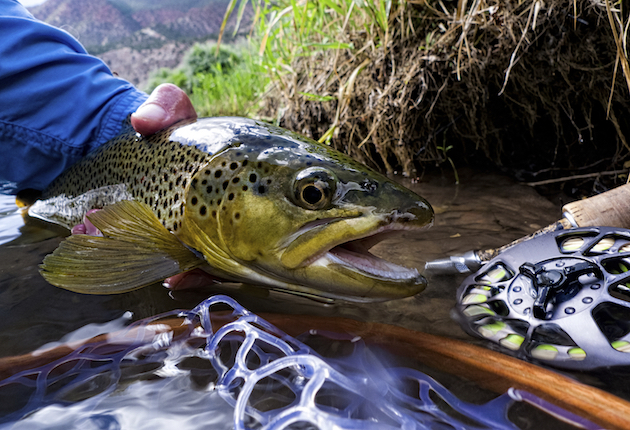
I tried drifting the bait to them; I tried dangling it in front of their noses; I even tried moving it away. But nothing worked.
And then I saw him. Or to be more precise, I heard him, lumbering through the brush on the far side of the stream, a roughhewn hulk of a man shouldering his way through the woods and into the small opening in front of me. I stood very still, and in my faded jeans and dull plaid jacket he didn’t see me until he looked up from the water and the wad of fish there in front of him.
“Hey.” His greeting was thin and without warmth or sincerity.
“Hey,” I echoed.
“Caught anything?” His roaming eyes looked all around but never directly at me, then back to the clutch of trout between us.
“No sir…they ain’t hittin’.”
He was, after all, a grownup, and I was just a kid.
We settled into a listless and anemic conversation, and I watched in growing anger as he began threading a small nightcrawler onto a big treble hook and started fishing in my pool. This angered me greatly, for it was clear that there was barely room here for one person to fish.
Now the pool was ruined, not simply by the other fisherman, but by the intrusion into what had earlier been a blissful moment of pure solitude. But darned if I was going to surrender to this intrusion, and so I stubbornly held my ground, despite the fact that every trout in the pool was probably spooked by now.
Finally, my concentration began to fragment and my mind began to wander, until my rod tip drifted downward and my single-hooked minnow sank beneath the exposed underbelly of one particularly large trout.
“Jerk there, boy, and you’ll snag one,” came the voice from across the pool.
His words shot through me like hot lead, and I felt the blood rush to my face as the adrenalin rushed through my body. I wanted to hurl myself across that narrow space between us and pummel him with my fists and tell him what I thought.
I wanted him to hurt. I wanted him to bleed. But as I said, he was a grownup and I was little. Still, looking him straight in the eye I seethed, “We don’t fish that way!”
He tried to back off, tried to apologize, but my cold glare told him what I thought of him and he looked away.
Oh, I stuck with it for a while longer…long enough at least for him to know I was leaving on my own terms and not his, and I didn’t respond to him when he called “Good luck.”
I was fried, and I honestly didn’t want to see anyone. So I fished. I fished hard. And when I had fished my way through my anger and the sun was beginning to drift to the west, I finally broke out into the long, open run just upstream from camp where we had begun our day.
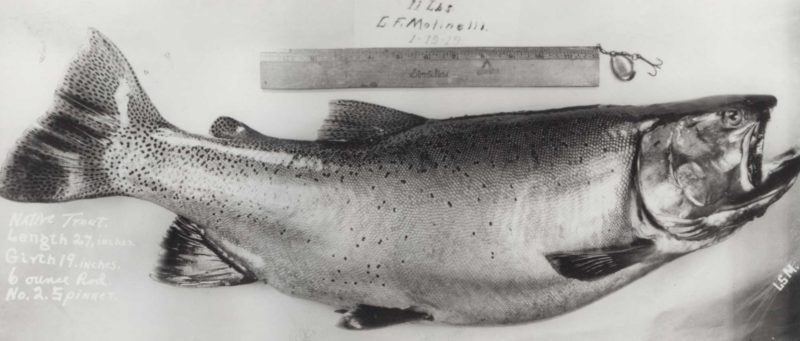
Dad saw me before I saw him, and when I looked up he was coming toward me, rather deliberately it seemed. I knew I’d been gone far too long and that I would likely be told as much. He was still a ways off and surrounded by the other fishermen, who I could see were also looking at me intently. And then he spoke.
“Did some guy try to get you to snag a fish!”
I had never heard such anger in his voice, and I desperately began trying to explain what had happened. How did he know? Had the stranger come back ahead of me and lied to him and told him I was rude? Surely he would know, surely he would believe me. Surely he would still be my dad.
And then he was there, towering over me, his hand firmly clutching my shoulder and his face mirroring love and concern and not anger, at least no anger with me. And then Mr. Ward was there and reached down and scruffed up my hair again and shook my hand as I tried to figure out what had just happened.
If none of us knew the stranger, Mr. Ward certainly did. And he knew his past history. That’s why he had disappeared so suddenly earlier that morning.
He’d watched the old poacher from the moment he first spotted him and had finally trailed him to the top of the steep slope above the pool where I had been fishing. He’d remained hidden there, watching us, watching me as I tried to coax a hit from the reluctant trout and had heard the guy try to get me to snag one.
And he’d heard me when I said, “We don’t fish that way!”
After I had left, he’d watched the guy snag two trout on his own, then appeared with the mandatory offer of a ride into town and free lodging for the foreseeable future. The man was, even now, waiting handcuffed in the back seat of Mr. Ward’s patrol car.
Dad and I fished together for the rest of the afternoon. He, of course, caught his limit, and I wound up with seven trout of my own, which Mom fried up fresh for our supper that evening.
By the time we got all of our fishing gear put away that night, I was very tired. And when I finally settled into my bed, Dad came in to tell me “Good night.”
 Renowned fishing writer Paul Quinnett and whimsical artist Deanna Camp team up to show you the fish you’ll forever want to catch, because you’ll almost certainly never catch one. Still, hope springs eternal in the breast of every angler, which is really the whole point.
Renowned fishing writer Paul Quinnett and whimsical artist Deanna Camp team up to show you the fish you’ll forever want to catch, because you’ll almost certainly never catch one. Still, hope springs eternal in the breast of every angler, which is really the whole point.
This is the perfect gift for a fly fisher who loves a good cocktail with their wild fish stories! To aid the in joy of the journey, mix yourself one of this book’s tasty libations, build your campfire, sit back for some highly entertaining fish stories and lose yourself in the search. The 120-page book features both full-color paintings and photographs. Buy Now

